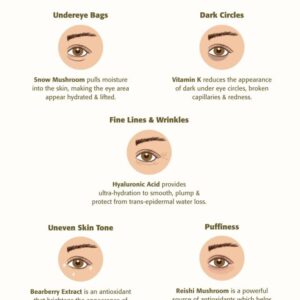As we forge ahead into the year 2024, the organic skin care industry is blossoming with vigor, rooted in the flourishing demand for products that embody eco-friendly skincare trends and sustainable skincare industry forecasts. Amidst a world attuned to wellness and environmental stewardship, the green beauty industry presents an analytical glimpse into the burgeoning realm, ripe with clean beauty market insights and a robust cruelty-free cosmetics market outlook. This year heralds a pivotal moment, where refined organic skin care industry trends and vanguard innovations become the linchpin for brands seeking to thrive within this verdant market.
Discerning consumers championing green beauty principles continue to drive the skin care industry predictions towards a horizon where ethics and aesthetics unerringly align. As we delve into the comprehensive trends and predictions on organic skin care products industry, join us in sifting through the vibrant spectrum of possibilities that await.
Key Takeaways
- Demand for natural ingredients and responsible sourcing is shaping organic skin care industry trends.
- Innovations in product formulation align with eco-friendly skincare trends, enhancing market appeal.
- Consumer expectations are leaning towards brands exemplifying transparency and sustainability, as per skin care industry predictions.
- Green beauty industry analysis indicates a steady climb in the organic sector’s prominence and profitability.
- Future sustainable skincare industry forecasts suggest a synthesis of wellness and environmentalism will continue to dictate consumer preferences.
- An emphasis on cruelty-free cosmetics reflects a broader cultural shift towards compassionate consumerism.
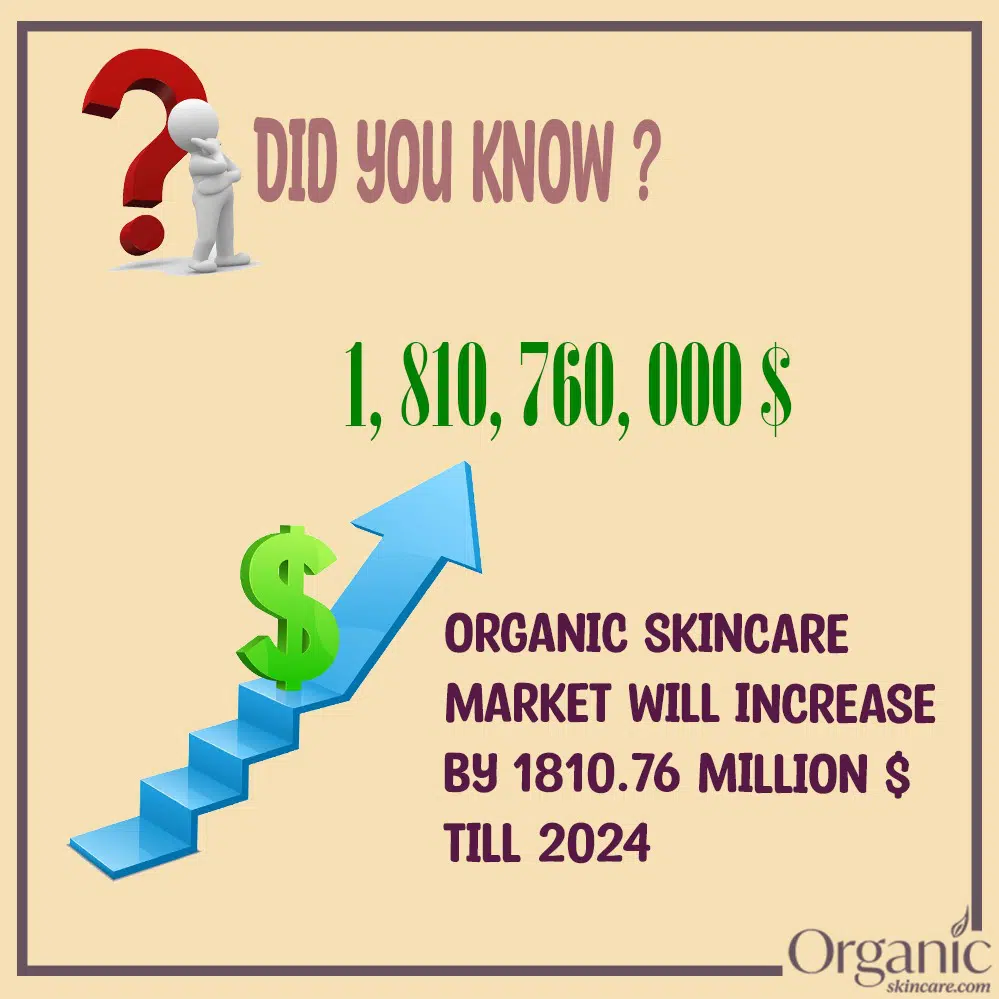
The Current State of the Organic Skin Care Market
In recent times, the organic skin care market has witnessed unparalleled growth, steered by the collective shift of consumers towards products that mirror the values of health and ecology. The trends and predictions on organic skin care products industry are overwhelmingly positive, pointing to a future where clean beauty is not just a niche, but a staple in the personal care arsenals of consumers worldwide.
The Rise of Clean Beauty and Its Impact
The crafting and embracing of clean beauty products have ushered in a new ethos within the beauty industry. This seismic shift towards organic skin care market growth is not just a fad but a reflection of the profound recognition of the intrinsic link between personal well-being and environmental health. Brands, both legacy and startups, are taking notice, innovating their offerings to meet the clamor for natural beauty.
Organic Skin Care: Consumer Demand Insights
The pulse of the industry is increasingly influenced by consumer preferences for natural beauty. Through mindful curation of ingredients and ethical production practices, the organic sector is catering to this well-informed customer base. This pivot towards organic formulations is predicated not only on consumer advocacy but also on the discernable efficacy and heightened ethical standards that these clean beauty products offer. In this burgeoning market, transparency is the currency of trust, and brands are investing heavily in this virtue to forge lasting relationships with customers.
As trends and predictions on organic skin care products industry continue to evolve, it is clear that the integration of consumer insights with sustainable practices is pivotal for continued market rejuvenation and relevance. This symbiosis between brand offerings and consumer ethos is sculpting a clean beauty landscape where the growth trajectory is as robust as it is genuine.
Key Factors Driving the Organic Skin Care Sector
The ascendance of the organic skin care sector can be attributed to a confluence of factors that hinge on consumer demand for organic products and an inherent inclination towards sustainability. As individuals become more informed of what they apply to their skin, the market nuances orient towards products that are not only efficacious but also conscientious. Let’s delve into the compelling drivers that are catapulting this sector to the forefront of the beauty industry.
First and foremost, the surge in natural beauty market trends is a testament to the growing consumer cognizance of the myriad benefits linked with natural ingredients. The movement towards wellness and a more sustainable lifestyle is mirrored in the gradual shift from synthetics to organics in personal care routines.
Another influential driver is the rising awareness and concern for the environment which has fueled the sustainability drivers in skincare. Ethical sourcing and manufacturing processes are now pivotal in securing consumer trust and loyalty. This ethos is increasingly becoming a key factor in product selection and brand preference.
In the same vein, the spotlight on organic methodologies isn’t just about the end product. It extends to the cultivation and extraction process of ingredients, feeding into a larger narrative of planetary health and ecological stewardship. The skincare sector, thus, is not merely meeting the demands but also nurturing a narrative of responsible consumerism.
| Trend | Consumer Behavior | Market Impact |
|---|---|---|
| Organic Ingredients Demand | Preference for non-toxic, natural components | Rise in brands curating organic-centric product lines |
| Eco-Conscious Packaging | Seeking sustainable and recyclable materials | Innovative packaging solutions and reductions in plastic use |
| Transparent Sourcing | Insisting on traceability and ethical operations | Increased openness in supply chain disclosures |
| Certification and Standards | Reliance on certified products for quality assurance | Brands pursuing rigorous certifications to verify their claims |
Undoubtedly, the current state of the organic skincare market is a reflection of a more discerning, informed, and ethically-oriented consumer base. These substantial shifts in consumer expectations and behavior are redefining the vision and operations of skincare brands around the globe. What emerges is a portrait of an industry that is not only in tune with the needs of its consumers but also with the rhythm of the natural world.
Emerging Trends in Eco-Friendly Skin Care Products
The beauty industry is constantly evolving, with a marked spike in demand for products that not only promise to nurture skin health but also protect our planet. At the heart of this revolution are the remarkable innovations in skincare, rooted in the new, eco-friendly ethos that today’s informed consumers espouse. These trends epitomize the intersection of science and sustainability, embodying a bond with nature through organic ingredients trends, while making significant strides in sustainable skincare packaging and eco-friendly skincare product development.
Innovations in Organic Ingredients
The quest for purity in skincare has led to groundbreaking innovations in organic ingredients. The industry is witnessing a surge of interest in bioactive compounds derived from nature, known for their potent skin-healing attributes without a harmful footprint on the environment. With advancements in extraction techniques, the potency of these ingredients is maximized, while preserving their intrinsic benefits—delivering a performance that modern consumers demand from their skincare regime.
Developments in Sustainable Packaging
Another transformative trend redefining the organic skincare space is the shift towards sustainable skincare packaging. A new wave of creativity and ecological awareness has given rise to containers made from renewable resources, biodegradable composites, or recycled materials. Brands are keen to reduce plastic dependency, au courant that conscious consumers are inspecting not just what’s in their products, but the very vessels that house them. This adherence to sustainability amplifies a brand’s ethos and attracts a discerning clientele eager to support environmentally responsible beauty.
Organic Skincare and the Wellness Movement
The harmonious blend of wellness and skincare is becoming increasingly palpable as individuals seek comprehensive approaches to enhance both their external allure and internal vitality. The organic skincare industry, attuned to the swift currents of holistic health in beauty trends, is refining its array of offerings, reinforcing the indispensable role of organic products within the sphere of total wellness.
Today’s consumers are no longer content with superficial remedies. The entwining of wellness and skincare resonates with those pursuing a life of wholeness and balance. This union is vivid in the meticulous integration of organic products in wellness routines, a testament to the industry’s responsiveness to this cultural shift towards a more grounded and mindful existence.
The consciousness surrounding organic skincare is more than mere aesthetic concern; it encompasses a lifestyle, a commitment to the Earth, and an embodiment of purity. It’s a pledge that the creams, serums, and cleansers anointing one’s body are kindred with the nurturing forces of nature.
Organic skin care is not an indulgence; it’s an essential component of a circumspect wellness regimen that values longevity and respects the intricate systems that comprise our living world.
- Organic components teeming with life force and devoid of harsh chemicals.
- Packaging designed with the planet’s welfare in mind, biodegradable and recyclable.
- Brands that share a symbiotic relationship with their clientele, predicated on authenticity and ethical transparency.
As the core of holistic health in beauty trends continues to pulsate more vigorously, industries and individuals alike are embracing the profound realization that beauty, in its purest form, is inseparable from wellness. The future is bright, and it is unequivocally green.
Trends and Predictions on Organic Skin Care Products Industry
The organic skin care sector is primed for expansion, with industry growth predictions casting a bright outlook on its future. As we dissect the layers of this vibrant market, it becomes apparent that the key to staying competitive lies in understanding and adapting to future consumer trends in skin care. With a growing consciousness around health and the environment, the expected market performance for organic beauty products is experiencing a positive surge, as modern consumers increasingly favor clean and conscientious beauty regimens.
Forecasted Growth Rates
The compass of the organic beauty industry points towards significant growth rates in the upcoming years. Analysts predict a steep upward trend in market size, fueled by a steadfast demand for products aligned with eco-friendly values. This surge is indicative of a wider acceptance of organic skin care as an integral part of daily beauty and health care routines, showcasing the potential for sustained industry growth.
Predicted Consumer Behavior Changes
Alongside optimistic financial projections, notable shifts in consumer behavior patterns are anticipated. The distinction of choosing products with organic origins and ethical production standards is poised to become exceedingly influential. Consumers are expected to seek out brands that not only talk the talk but also walk the walk in terms of environmental impact and social responsibility. This heightens the impetus for brands to invest in innovation and to market their products with authenticity to meet these values-driven demands.
| Year | Growth Prediction | Consumer Trend | Market Impact |
|---|---|---|---|
| 2024 | Steady Increase | Natural Ingredients Focus | Heightened Product Development |
| 2025 | Accelerated Growth | Ethical Sourcing Demand | Brand Differentiation |
| 2026 | Market Saturation | Green Packaging Innovation | Supply Chain Adaptation |
| 2027 | Consolidation Phase | Transparent Communication | Consumer Trust Elevation |
Challenges Facing the Organic Skin Care Industry
The surge in demand for organic skincare products has presented the industry with a unique set of challenges that must be strategically navigated to uphold the standards of both quality and ethical practice. As brands commit to the integrity of their formulations, they encounter the intricate dynamics of supply chain challenges in organic skincare and regulatory issues in natural beauty products. The call for transparency and authenticity pushes the industry to not just confront these challenges but to master the fine art of adaptation to skincare industry regulations.
Addressing Supply Chain Complexity
Establishing a robust supply chain that aligns with the promise of purity and ecological responsibility is an uphill task. Supply chain challenges in organic skincare are multifaceted, involving aspects such as sourcing raw materials, navigating freight complexities, and ensuring that every link in the chain adheres to stringent organic standards. Furthermore, the volatility in the availability of natural ingredients poses an added layer of intricacy, thus compelling companies to forecast, plan, and collaborate with diligence.
Navigating Regulatory Landscapes
Equally demanding is the need for compliance with diverse regulatory issues in natural beauty standards. Skincare products that are marketed as organic must meet comprehensive criteria, which vary not only by region but also by the certifying bodies. The onus rests on skincare brands to remain abreast of legislation changes, ensuring that their products consistently conform to the latest official directives for organic beauty. Such adaptation to skincare industry regulations enforces trust but also demands continual learning and operational flexibility.
| Supply Chain Aspect | Regulatory Facet | Industry Challenge |
|---|---|---|
| Ingredient Sourcing | Certification Standards | Maintaining authenticity in product formulation |
| Production Oversight | Marketing Claims Compliance | Bridging the gap between label promises and actual benefits |
| Logistics and Distribution | International Trade Regulations | Seamless global distribution while upholding organic integrity |
The competitive landscape of the organic skincare industry paints a picture of continuous evolution, one where meticulous attention to the complexities of supply chain orchestration and keen navigation of the global regulatory milieu determine the stalwarts of tomorrow. The imperative for organic skincare brands to not only embrace but also anticipate these challenges will pave the way for a market that is as sustainable as it is innovative.
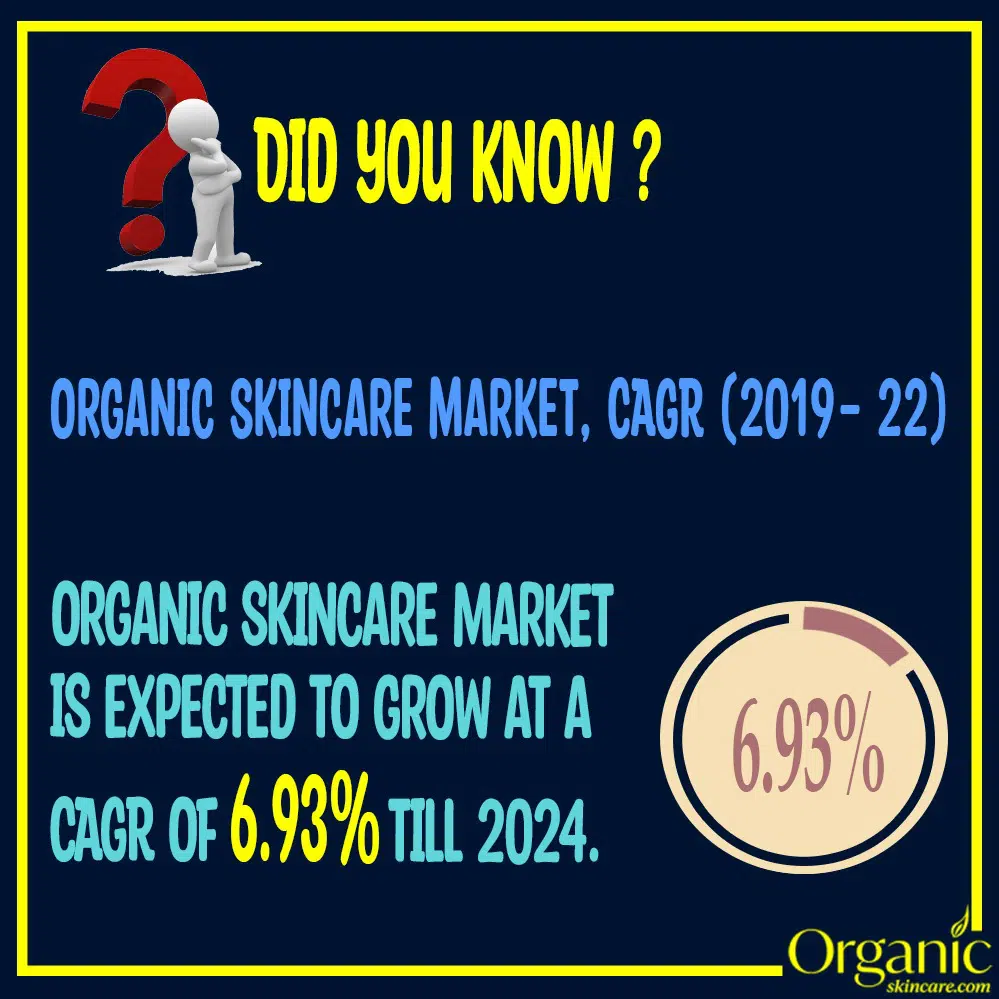
Impact of Technology on Organic Skin Care Businesses
The beauty industry is undergoing a significant transformation thanks to technology advancements in skincare. These changes are profoundly influencing how organic beauty products are created, distributed, and experienced by consumers. The technological impact on organic beauty cannot be overstated, as digital tools and innovations are reshaping the landscape of skin care from the ground up.
One of the most exciting developments is the way digital innovations in skin care are enhancing supply chain efficiency. By leveraging data analytics and artificial intelligence, organic skincare companies can now predict trends, manage inventory more effectively, and connect with suppliers in a manner that emphasizes sustainability and ethical sourcing. This leads to not only cost savings but also a reduction in the environmental impact of production.
Yet, it’s not just behind-the-scenes where technology is making its mark; the direct interface with customers has been revolutionized as well. Personalization, a growing expectation among skin care consumers, is being powered by advanced algorithms that analyze skin types and conditions to recommend bespoke organic skincare routines. Moreover, augmented reality apps allow customers to ‘try on’ products virtually, bridging the gap between the digital and physical product experience.
- Data-driven formulation of organic products caters to specific skincare needs
- Efficient logistics powered by the Internet of Things (IoT) ensure fresher product delivery
- Blockchain for traceable and transparent ingredient sourcing underscores brand integrity
Behind the scenes, cloud computing facilitates seamless collaboration among research and development teams dispersed across the globe. This collaborative atmosphere speeds up the innovation cycle, allowing organic skincare brands to bring new, effective products to market faster than ever before.
| Technological Tool | Function | Benefit to Organic Skin Care |
|---|---|---|
| Artificial Intelligence | Customer behavior analysis and product recommendation | Enhanced consumer satisfaction and loyalty |
| Sustainable Packaging Design Software | Eco-friendly material simulations and design | Reduced environmental footprint and innovative presentation |
| Blockchain Technology | Supply chain transparency and traceability | Increased consumer trust in product authenticity |
Finally, the integration of social media platforms with e-commerce enables brands to not just sell but also tell the story behind their products. Content marketing bolstered by these technological platforms creates educational opportunities that raise awareness about the importance of organic ingredients and sustainable practices in skin care.
From farm to face, the infusion of technology into the realm of organic skin care has created a new normal – one where brands are expected to deliver high-quality, ethical products through innovative, environmentally conscious methods.
In summary, the technological revolution holds immense promise for pushing the organic skincare industry to new heights. With each innovation, organic skincare businesses find themselves equipped to meet the demands of an ever-growing, discerning customer base that craves quality, transparency, and efficacy in their beauty products.
Market Analysis: Natural Beauty Market Trends
The landscape of the beauty industry has been reshaped by a rising tide of consumer demand for products that offer both ethical integrity and aesthetic enhancement. The market analysis of natural beauty reveals a burgeoning segment with impressive growth figures and increasing appeal among consumers and investors alike.
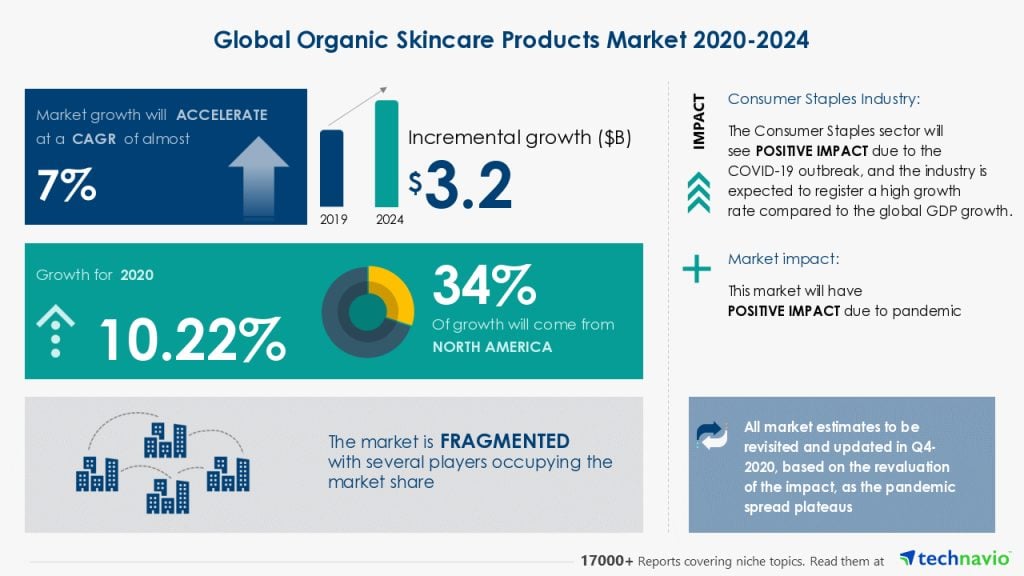
Market Size and Segment Performance
The global appetite for natural beauty has led to a significant expansion within the organic skincare segment, with market size metrics underscoring this category as a leader in growth. Driven by an informed and health-conscious consumer base, the financial performance of organic skincare segments has demonstrated the potency and resilience of this movement. Brands that prioritize sustainability and clean ingredients find themselves at a competitive advantage, resonating with a population that is increasingly mindful of what goes onto their skin.
Investment and Funding in the Organic Skin Care Sector
Reflecting the momentum of consumer trends, there has been a robust influx of skin care sector investment, confirming industry confidence in the long-term viability of the green beauty movement. This sustained investment and funding in the organic skin care sector are indicative of both current market health and future potential, with investors seeing organic products as a sound avenue to secure returns while supporting ethical business practices.
| Year | Market Growth | Investment Flow | Organic Segment Performance |
|---|---|---|---|
| 2022 | Strong | Increased | Robust |
| 2023 | Stronger | Significantly Increased | Exceptionally Robust |
| 2024 | Steady | Stabilized | Sustainably robust |
With an economy that values green solutions and wellness-focused lifestyles, the future of organic skincare looks radiant. It is through the amalgamation of discerning consumer choices, targeted investments, and a steadfast commitment to purity and transparency that the natural beauty market will continue to thrive and evolve.
Case Studies: Successful Organic Skin Care Brands
The organic skincare industry is witnessing a wave of success stories as brands adeptly navigate market entry and cultivate deep customer relationships. By examining case studies of triumphant brands in the field, we can uncover effective strategies for market penetration and building consumer loyalty. These brands have harnessed the power of transparency, quality, and community engagement to carve a niche in the burgeoning organic skin care space.
Brand Strategies for Market Penetration
Successfully penetrating the competitive landscape of organic skin care necessitates a strategic approach that harmonizes with evolving consumer expectations. A review of successful organic skincare brands case studies reveals several common strategies that these companies have employed to gain market traction:
- Employing direct-to-consumer selling models to streamline and personalize the shopping experience.
- Investing in social media marketing to tell their brand story and connect with a broader audience.
- Securing prominent retail partnerships to expand their presence and visibility.
- Adhering strictly to certifications to validate their claims of authenticity and quality.
Beyond these, influential collaborations with environmental advocates and celebrities have also proved instrumental in bringing the spotlight to their ethical practices and premium formulations.
Consumer Loyalty in Organic Skin Care
Building consumer loyalty in skin care has been pivotal for organic brands that have demonstrated exceptional allegiance from their customers. They achieve this through:
- Delivering consistently high-quality products that live up to their organic claims.
- Establishing a transparent supply chain, providing consumers insight into sourcing, production, and company values.
- Creating a community around the brand, often through social media and brand-affiliated events.
- Offering excellent customer service and engaging with consumers through tailored experiences and responsive communication channels.
This steadfast commitment has led to a growing base of repeat customers who don’t merely buy products but also advocate for the brand’s mission and philosophy.
| Brand | Key Penetration Strategy | Loyalty-Building Approach |
|---|---|---|
| Brand A | Intense focus on sustainable sourcing and production | Engagement through educational content on organic living |
| Brand B | Dynamic social media marketing campaigns | Loyalty programs and personalized skincare regimens |
| Brand C | Strategic retail partnerships for widespread availability | Commitment to cruelty-free practices and certifications |
The effectiveness of these market penetration strategies and techniques for nurturing consumer loyalty demonstrates that the successful organic skincare brands not only meet but exceed market and consumer expectations. Their adeptness at combining a profound respect for nature with a comprehensive understanding of the marketplace sets the stage for sustained success and growth.
The Role of Certifications in the Organic Skin Care Market
The importance of organic certifications cannot be overstated when it comes to navigating the competitive landscape of the organic skin care market. For consumers, these certifications symbolize a brand’s commitment to environmental stewardship and clean beauty, instilling a deep sense of trust in certified beauty brands. They serve as a beacon for shoppers scanning labels for assurance that what they’re applying to their skin is genuinely beneficial and ethical.
Certifications such as USDA Organic, EcoCert, and Cosmos are more than just labels; they’re a pledge of purity and a testament to a brand’s dedication to promoting health, sustainability, and transparency. As more individuals integrate certified organic skin care products into their daily routines, these certifications become vital in differentiating authentic organic brands from those merely capitalizing on the green wave.
Certified organic skin care products have made an indelible mark on the industry, influencing product development cycles and consumer buying habits. This has set the stage for a growing demand for certified products, compelling new and established brands alike to strive for and flaunt such accolades.
| Certification | Standards Met | Consumer Trust Level |
|---|---|---|
| USDA Organic | 95% organic content, stringent farming and production criteria | High |
| EcoCert | Sustainable sourcing, environmentally friendly manufacturing practices | Strong |
| Cosmos | European certification, strict organic and natural standards for cosmetics | Robust |
Thus, in the rapidly expanding world of organic care, certifications are the cornerstone upon which the integrity of a brand rests. Companies investing in these organic benchmarks are sending out a clear message about their values and their zeal to provide consumers with top-notch, conscious choices for their skin care needs.
By mandating adherence to organic farming techniques, ethical sourcing methods, and responsible production standards, these certifications elevate a brand from mere participants to pioneers within a growing community that deeply values the importance of organic certifications. In the final analysis, it is this distinguished commitment to certified practices that will continue to engender trust, loyalty, and respect among consumers who are increasingly keen on aligning their purchases with their principles.
Organic certifications are the gold standard in the pure skin care realm, relentlessly ensuring that the promise delivered in the bottle is as true and effective as nature intended.
Global Influences Shaping the U.S. Organic Skin Care Industry
The flourishing U.S. organic skin care market bears the unmistakable imprint of global influences. Today, international organic standards and cross-cultural trends converge to dictate the pace and direction of the industry’s evolution. This has prompted U.S. brands to look beyond domestic borders, embracing a collage of global beauty insights that profoundly inform product innovation and consumer outreach.
International Standards and Practices
In the pursuit of excellence and credibility, the U.S. organic skincare sector is turning to international organic standards. These benchmarks, which include guidelines set by entities like COSMOS and ECOCERT, are being adopted to ensure products meet universal expectations of quality and sustainability. By aligning with these rigorous certifications, brands are empowered to compete on a global stage, their products a testament to international compliance and purity.
Cross-Cultural Consumer Preferences
The essence of beauty is celebrated differently across the world, with each culture bringing a unique perspective that enriches the broader cross-cultural trends in beauty. The U.S. industry, tapping into this rich tapestry, enriches its offerings with ingredients and practices rooted in global heritage, from K-beauty inspired innovations to Ayurvedic formulations. This adoption and assimilation of diverse beauty rituals underpin the sector’s growth and diversification.
| Culture | Influence on U.S. Skin Care | Examples of Adopted Practices |
|---|---|---|
| Asian (K-beauty/J-beauty) | Innovations in skin texture improvement and layering techniques | Sheet masks, fermentation in skincare |
| African | Natural and sustainable sourcing of raw materials | Shea butter, baobab oil |
| Middle Eastern | Rich, organic oils and hydration-centric regimes | Argan oil, camel milk products |
| European | Eco-centric regulations and green formulas | Microbead bans, biodynamic farming |
These global influences on U.S. skincare are not fleeting; they’re deeply engrained into the fabric of the industry, signaling a new era of interconnected beauty philosophies that respect and celebrate multinational contributions.
Expert Opinions: Skin Care Industry Predictions
The organic skin care industry is teeming with opportunities and challenges, a dynamic landscape that draws on expert industry predictions to chart the future. Gleaned from insights from skin care leaders, these forecasts prepare us for an ever-evolving marketplace where innovation and responsiveness are key. Let us delve into the vision and foresights shared by those at the vanguard of this green beauty revolution.
Insights from Industry Leaders
Influential figures in the beauty domain are projecting transformative shifts in the skin care industry, emphasizing the significance of eco-conscious product development and integrity in brand ethos. These insights from skin care leaders suggest that the demand for clean, transparent, and efficacious products will only intensify as more consumers become educated on the impact of their choices.
“The future of skin care is green, clean, and more scientific than ever. We’ll see a rise in brands that not only leverage nature’s best but also harness innovative technologies to amplify results.” – Industry Leader’s Quote
Emerging Brands to Watch
Momentum is building behind a cohort of notable emerging organic beauty brands. These startups are making waves with their unique formulations, sustainable practices, and genuine commitment to enhancing skin health without compromising on ethical standards.
- Innovative approaches to recycling and zero-waste packaging.
- Products that tap into the healing properties of lesser-known botanicals.
- Personal care items that transcend beauty, contributing to holistic health and well-being.
With these rising stars at the helm, the industry is set to witness a tangibly positive shift, both in terms of market dynamics and the overarching narrative around organic beauty.
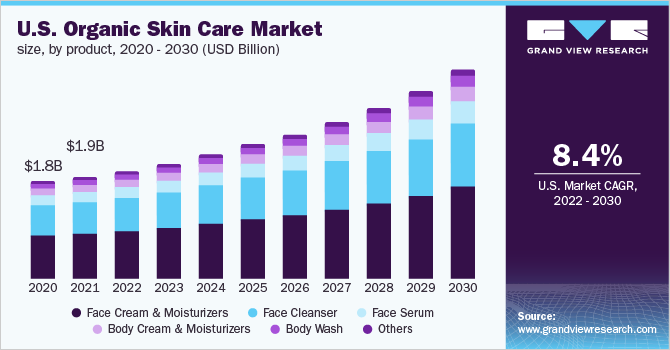
Conclusion
The skin care industry predictions for the organic sector encapsulate a resounding message of growth and positivity. As discerning consumers increasingly opt for products aligned with their values of health and ecological ethics, the future of organic beauty promises to be luminous and impactful. Brands that continue to innovate while embracing the core tenets of natural, ethical production are forecasted to emerge as leaders in this enriched landscape.
Indeed, the ability to morph with consumer needs, invest in eco-technological advancements, and uphold a transparent ethos will distinguish the frontrunners in the forecast for the natural skincare market. The propulsion towards sustainability in both practice and essence signals a transformative era for the industry, one that is driven by intent and bolstered by a well-informed audience.
Reflecting upon the skin care industry predictions, it is evident that organic skincare’s ascendancy is not a momentary surge but an enduring advancement. As society progresses towards sustainable living, the holistic embrace of organic beauty products is more than a trend—it’s a reflection of a global shift in consumer consciousness. Those poised to navigate this roadmap with agility and authenticity are slated for enduring prosperity and resonance within the market.
FAQ
What are the current eco-friendly skincare trends?
The current trends in eco-friendly skincare highlight the use of sustainable packaging, zero-waste products, plant-based biodegradable formulas, and cruelty-free certifications. There’s also a growing interest in blue beauty, which considers the impact of products on the oceans.
How is the clean beauty movement impacting the organic skin care industry?
The clean beauty movement is significantly impacting the organic skin care industry by driving consumer demand for transparency in ingredient sourcing, production processes, and product labeling. This has resulted in a noteworthy shift towards formulations that are free from toxic chemicals and made with natural, organic ingredients.
What consumer insights are driving the organic skin care market growth?
Consumers are increasingly aware of the health benefits associated with organic ingredients and are seeking skincare options that align with a holistic approach to wellness. This is leading to market growth as brands innovate to meet the preferences for effective, natural beauty products.
What key factors are driving the organic skin care sector?
The organic skin care sector is driven by several factors including rising health consciousness, a sustainable lifestyle shift, ethical consumerism, and increasing knowledge about the long-term benefits of using organic and cruelty-free products.
What are the latest innovations in organic ingredients for skincare?
Innovations in organic ingredients include the discovery of new plant-based compounds with powerful anti-aging and skin healing properties, fermentation processes to enhance ingredient effectiveness, and the use of stem cells from plants to promote skin regeneration.
How are skincare brands addressing sustainable packaging?
Skincare brands are increasingly using recyclable and biodegradable materials, reducing packaging size and complexity, implementing refill systems, and exploring innovations like plantable packaging to reduce the environmental impact.
What is the connection between wellness and organic skincare?
Wellness and organic skincare are interconnected through the emphasis on nurturing the body both inside and out. Organic skincare is viewed as an extension of a healthy lifestyle, with consumers choosing natural products that compliment other aspects of their wellness routines.
Can you discuss forecasted growth rates for the organic skin care industry?
While specific numbers fluctuate, industry forecasts generally agree that the organic skincare market is set to continue expanding at a robust rate due to increasing consumer demand for natural, ethically-made products and global awareness about environmental issues.
What changes in consumer behavior are predicted for the skincare market?
Consumers are expected to gravitate more towards brands that offer transparency, prioritize sustainability, and provide proof of ethical sourcing. There’s also predicted to be a rise in personalization of skincare products and an increased reliance on digital technology for skincare recommendations.
What are some challenges facing the organic skincare industry?
Challenges include ensuring transparent supply chains, meeting diverse global regulations, obtaining and maintaining organic certifications, and educating consumers about the benefits and authenticity of organic products.
How is technology impacting the organic skin care business?
Technology is enabling more sophisticated R&D for natural ingredients, data-driven customization of skincare regimens, enhanced online customer engagement, and more efficient, transparent supply chains.
What trends are emerging from market analyses of the natural beauty segment?
Market analyses reveal a rapidly growing segment with an increased number of entrants, more investment in sustainability-focused initiatives, and heightened consumer demand for plant-based and organic products.
What strategies are successful organic skincare brands using to penetrate the market?
Successful strategies include highlighting ingredient purity, leveraging social media for brand storytelling, engaging in partnerships with eco-conscious influencers, and demonstrating a genuine commitment to sustainability and ethical practices.
How do certifications affect consumer trust in the organic skincare market?
Certifications play a crucial role in building consumer trust as they provide a verified assurance that a product meets established organic and cruelty-free standards, which can significantly influence purchasing decisions.
What global influences are shaping the U.S. organic skin care industry?
The U.S. organic skincare industry is influenced by international beauty trends, such as Korean skincare innovations, European green beauty standards, and holistic approaches from various cultures, leading to a more diverse and enriched U.S. market.
What insights are industry leaders providing regarding skin care predictions?
Industry leaders predict an ongoing increase in consumer demands for transparency, sustainability, and personalized skincare experiences. They also highlight the growth potential in merging tech and skincare for advanced product offerings.
Which emerging organic skincare brands should people watch?
While there are numerous emerging brands in the market, consumers should watch for brands that are innovating with new sustainable practices, demonstrating integrity through certifications, and fostering strong customer relations through community engagement.
Source Links
- https://federalnewsnetwork.com/management/2024/02/hud-cracks-down-on-old-fashioned-corruption-flourishing-in-nycha/
- https://jaffaarchitekci.pl/new/rottmnt-casey-jones.html
- https://www.guelphtoday.com/national-business/pembina-pipeline-deferring-cedar-lng-decision-until-mid-year-8347540


